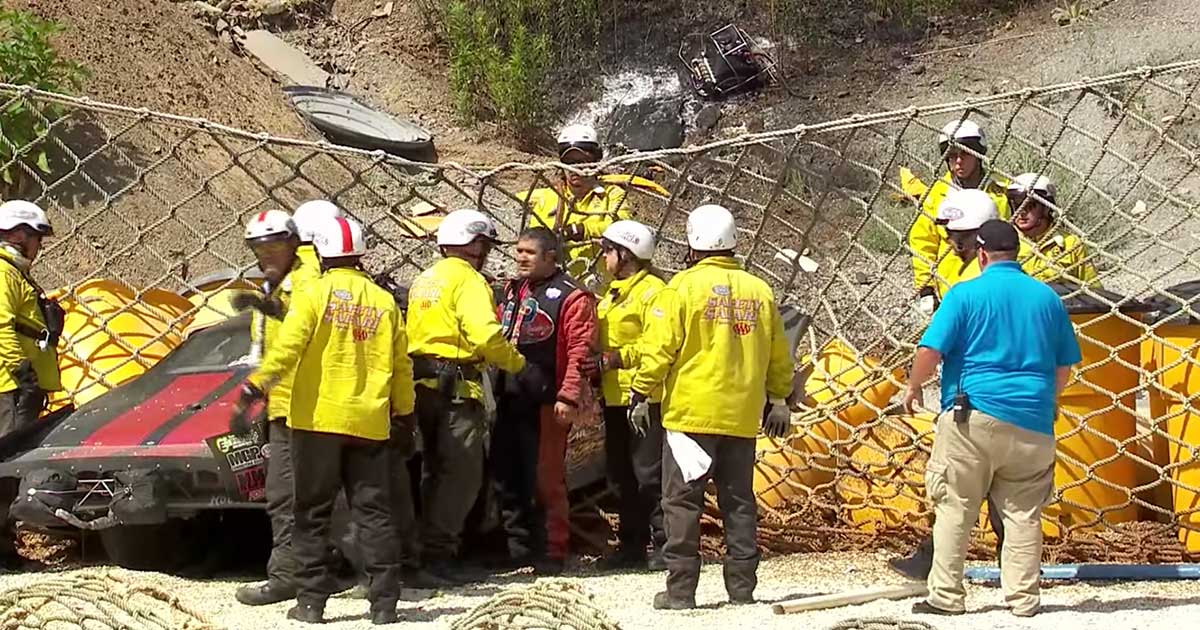Parachute and Brakes Fail to Deploy, Pro Mod Racer Goes on Ride of a Lifetime

Traveling at 250 mph is much faster than most human beings will experience outside of an airplane. A very small percentage of people, probably less than 1% of drivers, will ever be behind the wheel of a car accelerating to such speeds. For the men and women of Pro Mod racing, though, they do it on a regular basis.
These cars are put together in such a way as to ensure they’re a force to be reckoned with. In addition to all of the moving parts that are needed to help them accelerate to such speeds, there is an equal amount of safety equipment. These days, the NHRA doesn’t play around when it comes to making sure that its drivers are in a good place in the event of a worst case scenario.
When riding along with driver, Marc Caruso, at the Thunder Valley Nats, we watch a near worst-case scenario unfold. After watching the car clock in with passes around 250 mph, eventually, we would see something jaw-dropping unfold. After completing a clean A-to-B pass, something just wasn’t right. Marc’s parachute failed to deploy after a pass. For those who are unfamiliar, a simple braking system wouldn’t be enough to slow one of these cars down. They need extra help from the parachute to bring them safely to a halt.

At least Marc would be able to use the brakes to slow the car down before hitting the sand trap, right? Think again. When Caruso went to get on the brakes, he found that nothing would be there, either. This meant that he would be left to slow down with nothing other than wind resistance and friction. In other words, he would be hitting the sand trap at nearly full speed.

The scene was crazy as the machine would touch the sand and eventually be caught by the net. Somehow, Caruso would be able to exit the car and stand under his own power. It would later be found that he sustained a back injury but would be fine. More specifically, he would suffer a lower lumbar fractured spine.
This is just another testament to the incredible safety equipment available to drivers today.

